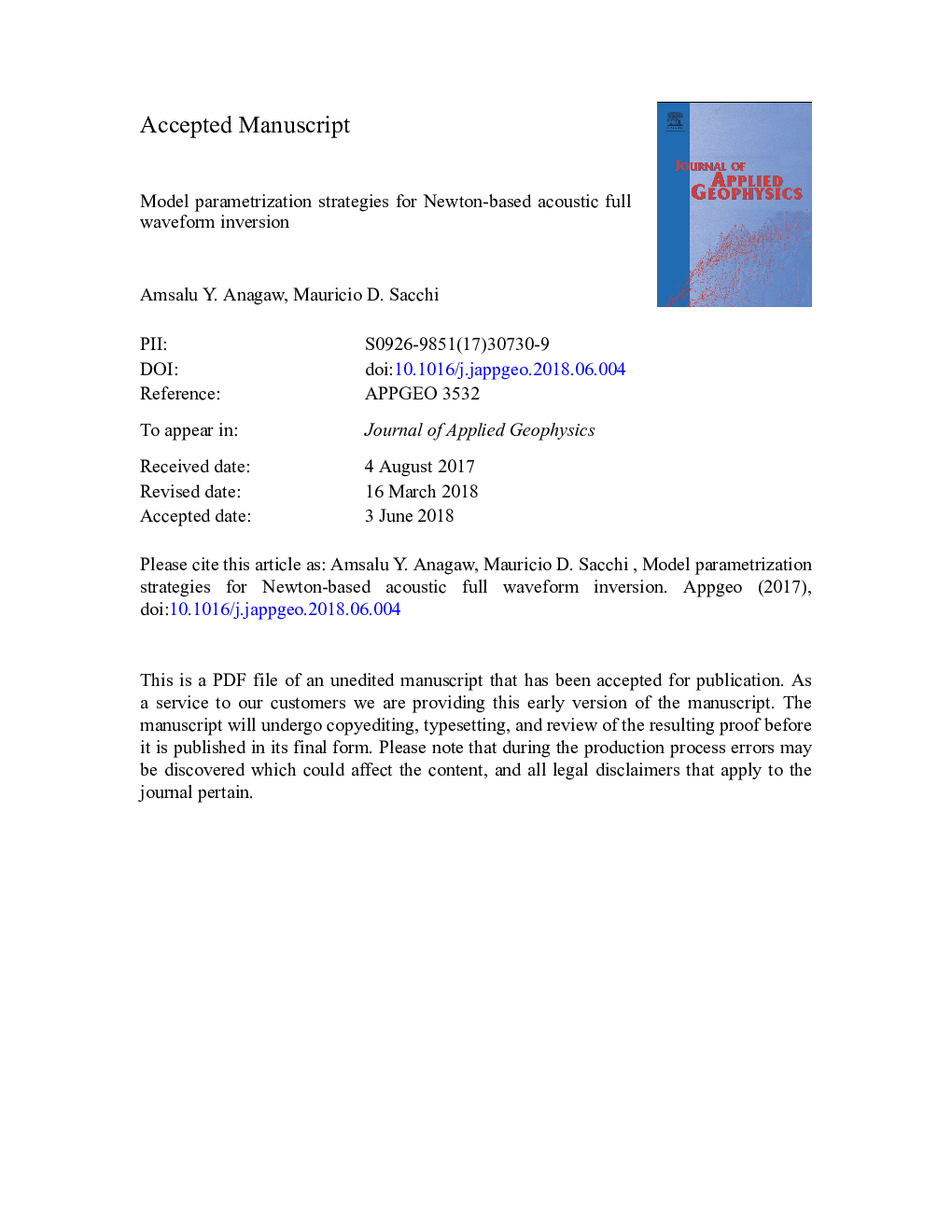| Article ID | Journal | Published Year | Pages | File Type |
|---|---|---|---|---|
| 8915292 | Journal of Applied Geophysics | 2018 | 37 Pages |
Abstract
Full waveform inversion (FWI) is an efficient engine for estimating subsurface model parameters. FWI is often implemented via local optimization methods such as conjugate gradients or steepest descent. In this paper, we examine the effect of model parameterization on the estimation of velocity models obtained via Newton-based optimization FWI methods. We consider three model parameterizations for acoustic FWI. These include velocity, slowness and slowness squared parameterizations. We numerically demonstrate that model parametrization significantly influences the convergence rate of the Newton method. A high convergence rate for Newton-based FWI algorithms can be attained by using a slowness squared model parameterization. The latter is true for data with relatively high signal-to-noise ratio. However, in the case of data contaminated by high levels of noise, the slowness parameterization provides a good trade-off between the resolution of the reconstructed model parameters and convergence rate in comparison to velocity or slowness squared parameterization. Numerical results were conducted with the Marmousi velocity model to highlight our premises.
Related Topics
Physical Sciences and Engineering
Earth and Planetary Sciences
Geophysics
Authors
Amsalu Y. Anagaw, Mauricio D. Sacchi,
